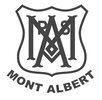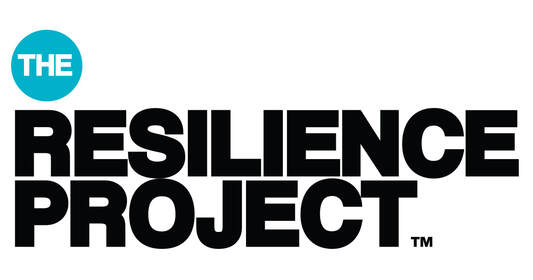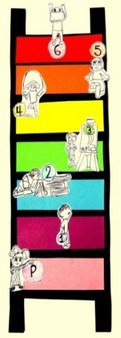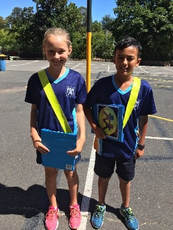Student wellbeing is promoted throughout all learning experiences by providing an environment and curriculum that supports students to develop knowledge, understanding and skills to manage their own health and wellbeing, and to support that of others.
The Resilience Project
The Resilience Project delivers evidenced based practical strategies to build resilience and happiness by focussing on 4 key strategies:
As a Partnership School, we experience all that the GEM (Gratitude, Empathy and Mindfulness) journey has to offer by embedding The Resilience Project’s wellbeing curriculum across the whole school community.
Teachers, students, parents and carers all receive tailored presentations that teach the GEM Principles, and inspire regular practise. To support long term change and embed mental health strategies all students participate in a weekly Resilience Project lesson, that has been mapped to the Victorian Curriculum.
Click/tap here to learn more about The Resilience Project.
There are many things that you can do at home to support the mental health and wellbeing of your child. For more information, please visit TRP @ Home.
- Gratitude - The act of being thankful and appreciating what you have in life.
- Empathy (Kindness) - The capacity to understand and feel what another person is feeling.
- Mindfulness - The practice of attention regulation.
- Emotional Literacy - The ability to understand and express our feelings.
As a Partnership School, we experience all that the GEM (Gratitude, Empathy and Mindfulness) journey has to offer by embedding The Resilience Project’s wellbeing curriculum across the whole school community.
Teachers, students, parents and carers all receive tailored presentations that teach the GEM Principles, and inspire regular practise. To support long term change and embed mental health strategies all students participate in a weekly Resilience Project lesson, that has been mapped to the Victorian Curriculum.
Click/tap here to learn more about The Resilience Project.
There are many things that you can do at home to support the mental health and wellbeing of your child. For more information, please visit TRP @ Home.
L.E.A.R.N. Groups
Student wellbeing is strongly linked with student learning. There is compelling evidence that student engagement and a sense of connection to the school and community is vital for effective learning.
Mont Albert Primary School have a whole school buddy program to promote student wellbeing and engagement within a supportive environment and positive school culture. Students participate in multi-age L.E.A.R.N. Groups, each led by a staff member. Students remain in their groups for their time at Mont Albert Primary School. L.E.A.R.N. Groups engage in a range of activities, which draw on the school values of: Learn, Endeavour, Aspire, Respect and Nurture.
The expected outcomes of the L.E.A.R.N. Groups include:
Mont Albert Primary School have a whole school buddy program to promote student wellbeing and engagement within a supportive environment and positive school culture. Students participate in multi-age L.E.A.R.N. Groups, each led by a staff member. Students remain in their groups for their time at Mont Albert Primary School. L.E.A.R.N. Groups engage in a range of activities, which draw on the school values of: Learn, Endeavour, Aspire, Respect and Nurture.
The expected outcomes of the L.E.A.R.N. Groups include:
- Building a sense of belonging and connection to the school community
- Developing relationships across the school which will act as a support network
- Supporting positive transitions within the school
Circle Time
Circle Time is a group orientated way of learning that is based on the core values of mutual respect, equal opportunity and inclusiveness. These values are reflected in the 'rules' and 'method'. The 'method' is a collection of teaching strategies that ensure that all students have equal opportunities within the circle.
Circle Time 'Rules':
Circle Time 'Rules':
- One person speaks at a time
- You may pass if you don’t want to speak about the topic
- Keep it positive – no put-downs
Restorative Practice
The restorative approach emphasises the importance of sound and healthy relationships between all members of the school community. From this perspective, behaviour problems are viewed as a breakdown in relationships, therefore behaviour management becomes ‘relationship management’.
Buddy Program
Year 6 students meet with their Prep buddies fortnightly for one session, beginning at the end of Term 1, when Year 6 students will be placed in the same L.E.A.R.N. Group as their Prep Buddies. Throughout Terms 2 and 3, students will rotate through different activities, including activities linked to various areas of the curriculum.
Transition
|
Students at Mont Albert are supported in their transition from Foundation to Year 6 via a range of sessions, which allow students to be informed about what to expect in the next year level.
|
Peer Mediation
|
The Peer Mediation Program aims to reduce incidences of bullying by providing a school environment that is positive, caring, safe and friendly. Peer Mediation teaches students to resolve low-level conflicts using their Year 5 peers as mediators. Mediation opens up communication channels allowing the disagreeing students to discuss their problems and come to a resolution with the guidance of the mediators. Year 5 Peer Mediators are in the junior play areas at lunch times and wear a bright yellow sash and carry a clipboard to record notes of their mediation.
|
Chaplaincy Program
Meeting the physical, emotional and spiritual needs of students is important as schools aim to develop the whole person and produce resilient, competent and successful individuals. While a variety of support services are required to meet the diverse range of needs within a school community, Chaplains play a distinct role in providing ongoing pastoral care. Being present within a school community and building key relationships is core to School Chaplaincy. Mont Albert Primary School’s Chaplain, Carolyn Bunston, is part of the Wellbeing team and works closely with the Wellbeing Coordinator and Assistant Principals. Carolyn works on Tuesdays and Fridays.
The Chaplain offers:
Programs offered or supported by the Chaplain include:
The Chaplain offers:
- Pastoral care support to the whole school community – including students, families and staff
- Building connections with the wider community
- Intervention and trauma support in crises and emergencies including a foodbank of ready- made meals
- Educational and small group programs to address specific needs
Programs offered or supported by the Chaplain include:
- Seasons for Growth – grief and loss program
- Connections for Kids – social skills and emotional development course
- Peer mediation – trained senior students resolving low level playground conflicts
- Camps/sports days/excursion support
- Class sessions focusing on students wellbeing
- Lunchtime club
Connections for Kids
Connections for Kids is a social and emotional learning program, for selected Year 1, 2 & 3 students, which aims to develop confidence, resilience, social skills and problem solving strategies. Students participate in activities designed to promote awareness of their feelings and the feelings of others and engage in co-operative group activities to develop positive social interaction skills.
Seasons for Growth
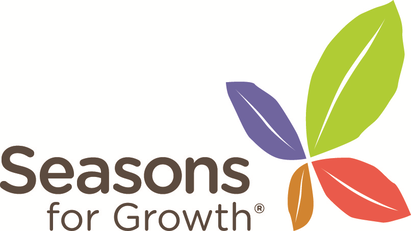
Seasons for Growth is a program organised and run under the auspices of Good Grief Australia. It is available to various age groups from 6 to adult and at Mont Albert Primary School it is a selective program that caters for ages 6-13 years. It is designed for children who have experienced significant change, loss and grief in relation to family breakdown, separation, dislocation, divorce or death of a significant other. The Seasons for Growth Program consists of 8 sessions, 1 celebration session and follow up.
The sessions follow the cycle of the four seasons:
Autumn - Session 1 and 2 aim to support participants to come to terms with the reality of the loss. This season is identified by the colours orange and yellow indicating change.
Winter - Session 3 and 4 give participants the opportunity to learn about the emotions that accompany grief and how each has experienced these in their own loss. This season is identified by the colours blue and purple indicating cold and sad.
Spring - Session 5 and 6 aim to provide participants with the skills that will assist them to process their own grief. This season is identified by the colour green indicating new life.
Summer - Session 7 and 8 encourage participants to explore the ways of letting go and moving on. This season is identified by the colour red indicating flowers and good experiences.
Winter - Session 3 and 4 give participants the opportunity to learn about the emotions that accompany grief and how each has experienced these in their own loss. This season is identified by the colours blue and purple indicating cold and sad.
Spring - Session 5 and 6 aim to provide participants with the skills that will assist them to process their own grief. This season is identified by the colour green indicating new life.
Summer - Session 7 and 8 encourage participants to explore the ways of letting go and moving on. This season is identified by the colour red indicating flowers and good experiences.
Wellbeing Dog
Mont Albert Primary School is committed to promoting the wellbeing of all students and a Wellbeing Dog may be used to assist with this.
The key aim of the Wellbeing Dog Program is to promote empathy and wellbeing amongst young people who may be experiencing issues with their mental health and wellbeing, trauma, separation, grief and loss and family and domestic violence.
A Wellbeing Dog is another strategy that we can draw upon in order to reduce the level of anxiety in our students.
The benefits of a Wellness Dog at school are endless. They can reduce stress, anxiety, depression, ease loneliness, encourage exercise and playfulness and even improve your cardiovascular health. Caring for a dog can help children grow up more secure and active while providing valuable companionship.
For more information, see 'Our Community - Our Wellbeing Dog' on this site.
The key aim of the Wellbeing Dog Program is to promote empathy and wellbeing amongst young people who may be experiencing issues with their mental health and wellbeing, trauma, separation, grief and loss and family and domestic violence.
A Wellbeing Dog is another strategy that we can draw upon in order to reduce the level of anxiety in our students.
The benefits of a Wellness Dog at school are endless. They can reduce stress, anxiety, depression, ease loneliness, encourage exercise and playfulness and even improve your cardiovascular health. Caring for a dog can help children grow up more secure and active while providing valuable companionship.
For more information, see 'Our Community - Our Wellbeing Dog' on this site.
